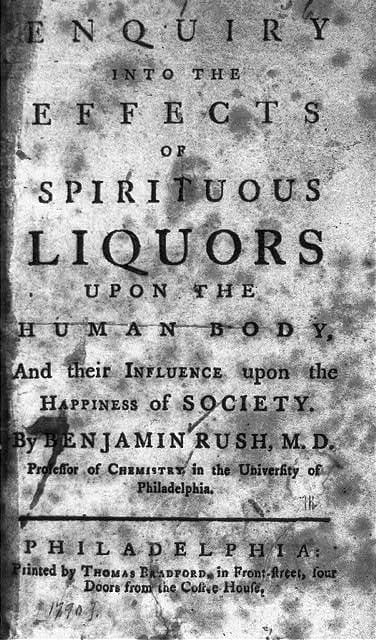

Conversation-based seminars for collegial PD, one-day and multi-day seminars, graduate credit seminars (MA degree), online and in-person.

No study questions
No related resources
As the Continental Congress moved towards and then declared Independence, it became increasingly important to consider those who would (and would not) benefit from the new nation’s commitment to the proposition of human equality. Abigail Adams urged her husband to consider the rights of women; Thomas Jefferson recognized that the existing institution of slavery presented not only a theoretical but a moral conundrum that would plague the young nation; religious minorities, like the Jewish Synagogue members in Philadelphia, asserted their right to be included as well. The principles of the Declaration – life, liberty, and the pursuit of happiness – seemed as though they should be open to all.
As John Adams and Benjamin Rush observed, the very headiness of freedom might prove to be the new nation’s downfall. While in theory liberty and equality were open to all, for the sake of political prudence, the number of those who enjoyed full civil rights had to be more limited in practice. Rush appealed not only to prudence but to Providence, observing that these principles were only secure when the citizenry were firm in their commitment to virtue, and would otherwise become dangerous.
A people corrupted with strong drink cannot long be a free people. The rulers of such a community will soon partake of the vices of that mass from which they are secreted, and all our laws and governments will sooner or later bear the same marks of the effects of spirituous liquors. . . . [as] individuals. I submit it therefore to the consideration of our legislatures, whether more laws should not be made to increase the expense and lessen the consumption of spirituous liquors, and whether some mark of public infamy should not be inflicted by law upon every man convicted, before a common magistrate, of drunkenness.
The second and last observation I shall offer, is of a serious nature. It has been remarked that the Indians have diminished everywhere in America since their connection with the Europeans. This has been justly ascribed to the Europeans having introduced spirituous liquors among them. Let those men who are every day turning their backs upon all the benefits of cultivated society, to seek habitations in the neighborhood of Indians, consider how far this wandering mode of life is produced by the same cause which has scattered and annihilated so many Indian tribes. Long life, and the secure possession of property, in the land of their ancestors, was looked upon as a blessing among the ancient Jews. For a son to mingle his dust with the dust of his father, was to act worthy of his inheritance; and the prospect of this honor often afforded a consolation even in death. However exalted, my countrymen, your ideas of liberty may be, while you expose yourselves by the use of spirituous liquors to this consequence of them, you are nothing more than the pioneers, or in more slavish terms, the “hewers of wood” of your more industrious neighbors.
If the facts that have been stated, should produce in any of my readers who have suffered from the use of spirituous liquors, a resolution to abstain from them hereafter, I must beg leave to inform them that they must leave them off suddenly and entirely. No man was ever gradually reformed from drinking spirits. He must not only avoid tasting, but even smelling them, until long habits of abstinence have subdued his affection for them. To prevent his feeling any inconveniences from the sudden loss of their stimulus upon his stomach, he should drink plentifully of chamomile or of any other bitter tea, or a few glasses of sound old wine every day. I have great pleasure in adding, that I have seen a number of people who have been effectually restored to health, to character, and to usefulness to their families and to society, by following this advice.

Conversation-based seminars for collegial PD, one-day and multi-day seminars, graduate credit seminars (MA degree), online and in-person.
